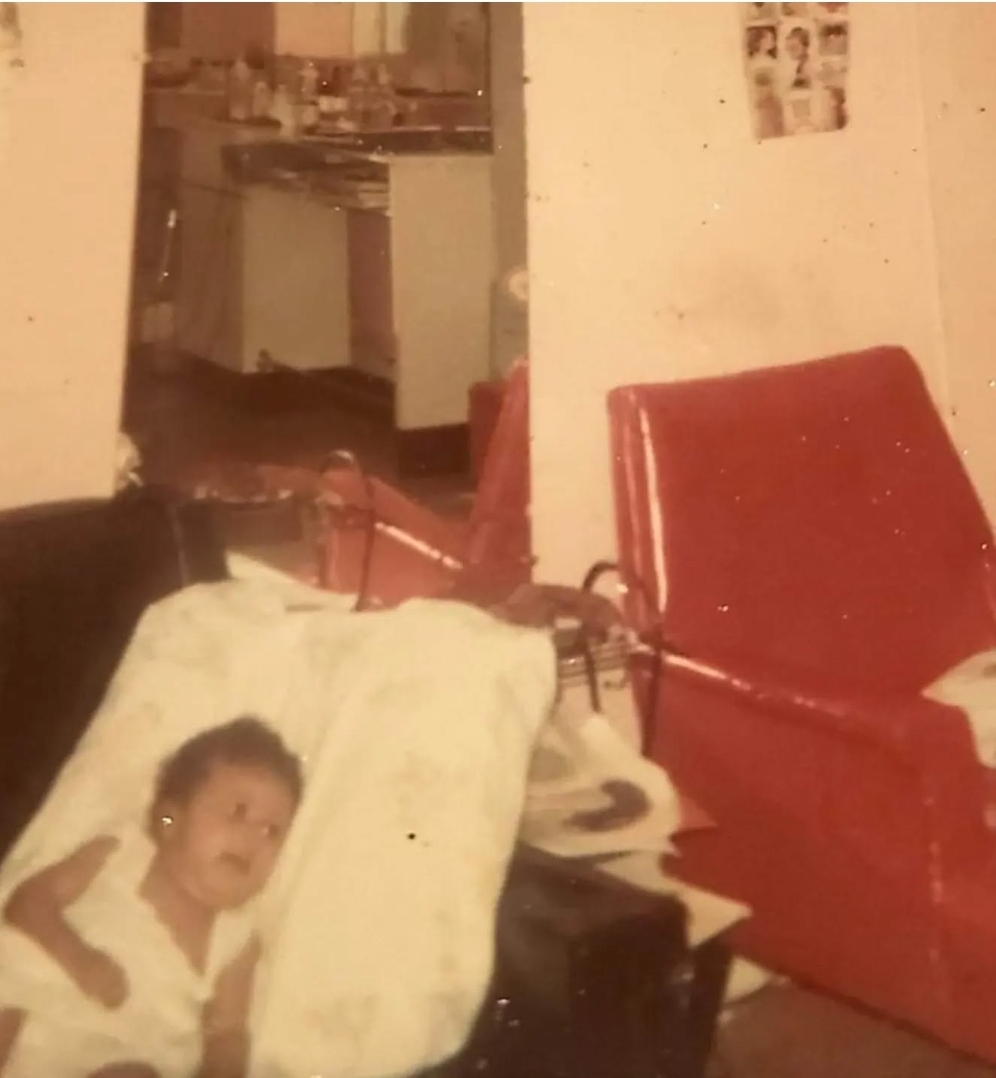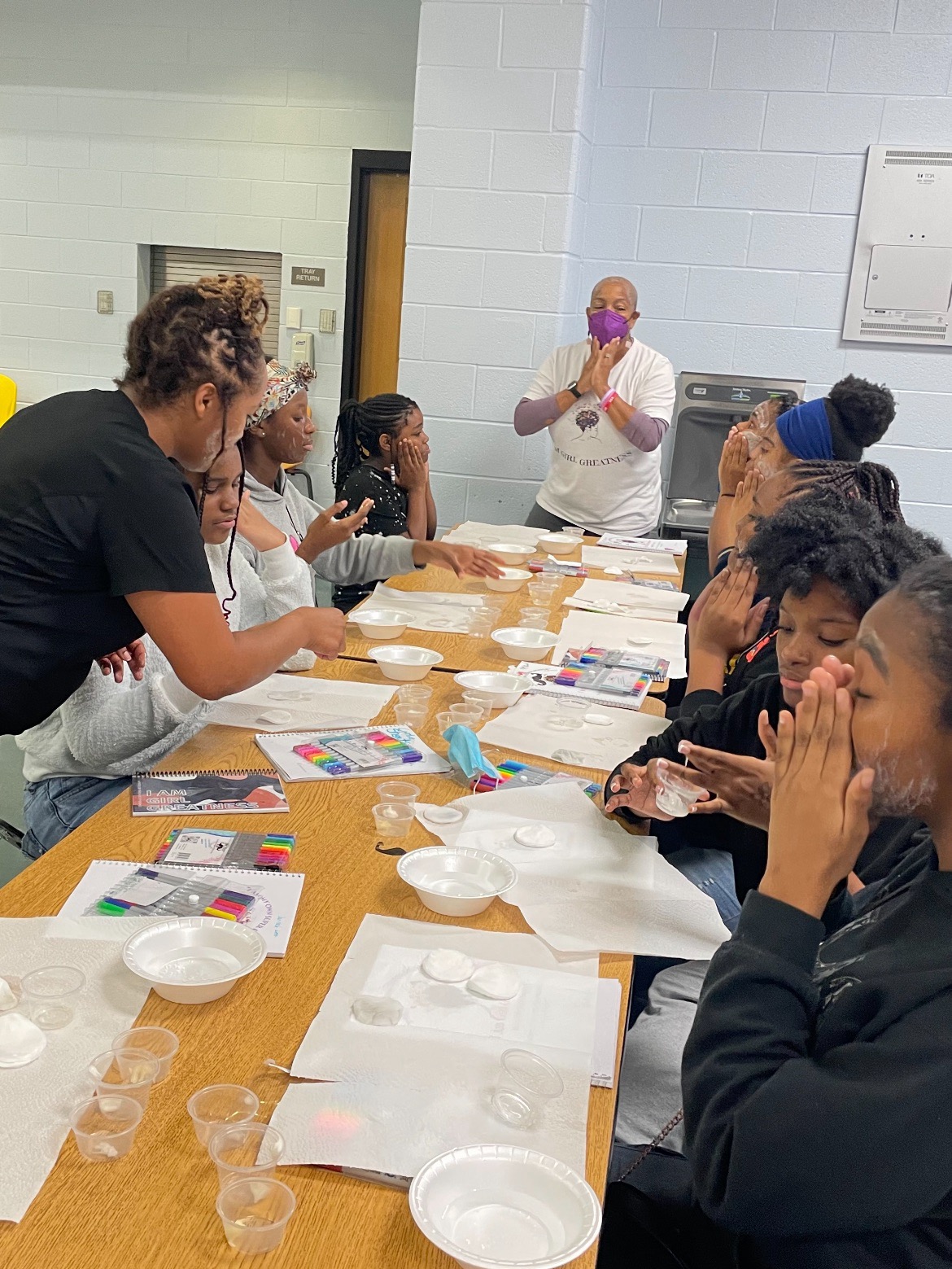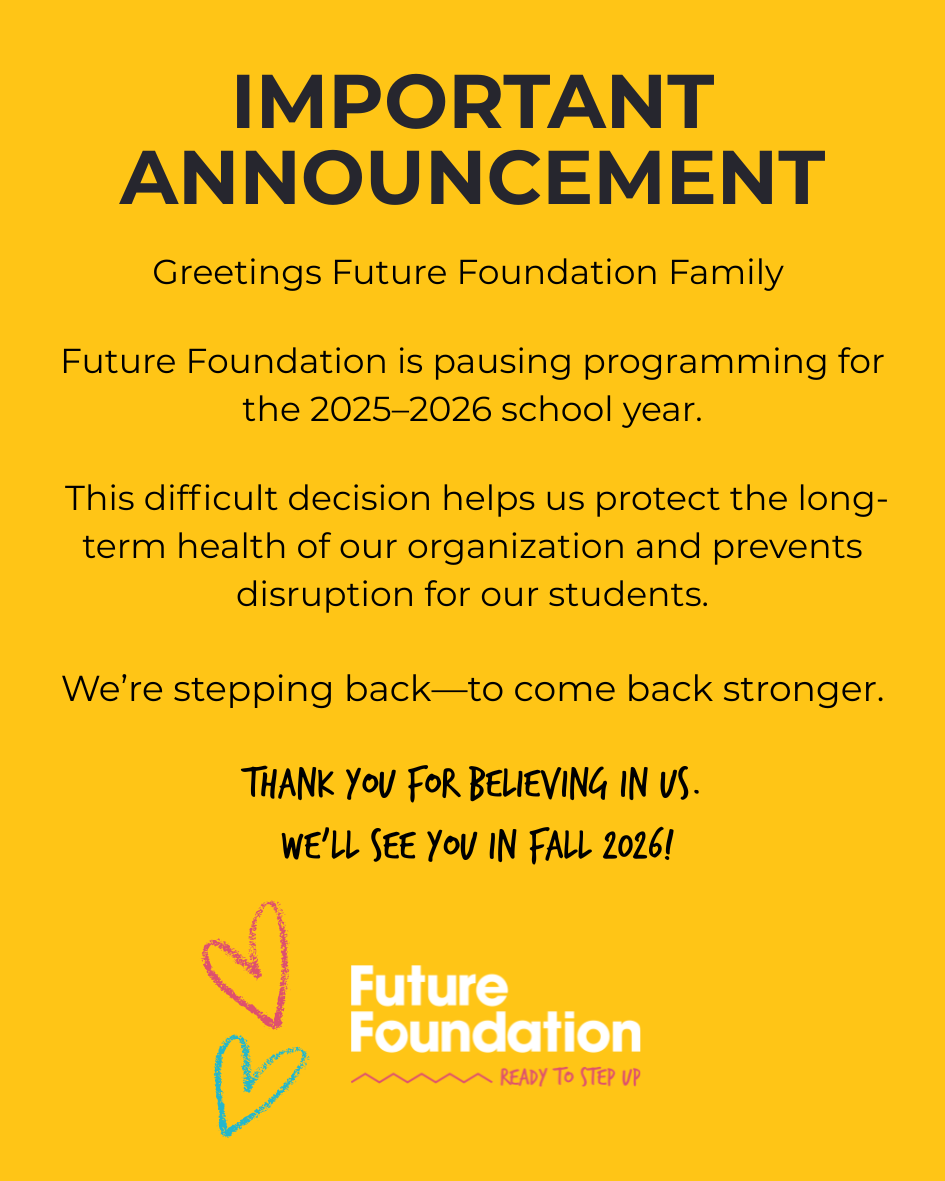
In celebration of Women’s History Month, we sat down with our CEO to discuss her perspectives on women’s leadership, empowerment, and Future Foundation’s impact.
What does International Women’s Day mean to you, both personally and professionally?
International Women’s Day is a day that invokes warmth and immense pride for me. I think James Brown said it best in his song, “This is a man’s world, but it wouldn’t be nothing without a woman or a girl.”

Growing up around enterprising women, I never questioned women’s power or importance. My grandmother was a seamstress who owned and operated her own beauty salon for over 60 years. As a baby, I sat propped up in a chair observing women come to share, help solve one another’s problems, and leave feeling invigorated and beautiful. My mother also ensured my sister and I interacted with professional female role models at each stage of our childhood.
These groups of women from every occupation encouraged and helped me to apply to the HBCU-Clark College. It was there; I was immensely impacted by the study of the Book of Esther. Struck by Queen Esther’s strategic positioning, wisdom, and bravery cast a vision for me.
Upon graduation, I met Esther. I mean, a real-life Esther. This woman became my mentor and a sponsor, introducing me to corporate social responsibility. Years later, I worked to support Walmart’s Global Women’s Empowerment Sourcing Initiative, which led to delivering upon the company’s commitment to source $20 billion and double sourcing from women suppliers. Being introduced to widow farmers, female suppliers, women serving as heads of organizations, and entrepreneurs in urban areas, and on tribal land showed me women all doing their part to change the entire world. It was like experiencing a powerfully beautiful engine of diverse parts holding up half the sky.
As a professional, I have led in corporate and nonprofit sectors. My experiences taught me to see women, every mother, and surrogate mom as the CEO; she strategizes, manages resources, and wholeheartedly invests in building people. I also still see every little girl deserving of the confirmation that nothing is impossible.
How does Future Foundation support and empower young women in our community?
Over our 24-year history, Future Foundation programs have always come alongside women as they build youth at home, in schools, and the community. Many of our alumni remember the Real Talk ATL, a life-impacted program led by the late Adrenna Clark, Program Manager at Banneker High School.
This program helped guide youth through discussions on how to make smart decisions about their bodies, relationships, finances, and overall life choices. It led to the launch of Parent Connect, which helped mothers and caregivers of Future Foundation program participants promote a stable home life for children by supporting adults in their lives.

We are now exceptionally excited about a unique program led by one of our new board of directors, Dr. Lisa Sistrunk. The Great Girl Experience™ seeks to enhance the overall well-being—mind and body—of each participant. Young girls develop and hone interpersonal and intrapersonal skills that serve them throughout their lives. The program aims to address the negative impacts of social media. A complement to our 2nd Family Model, the program encourages girls to contribute their unique thoughts and experiences.
The girls have an opportunity for mentor support to enhance individual success, potentially extending beyond the program. Town halls are hosted for parents/guardians, allowing for learning, sharing, and connecting, and creating a community of mutual support.
As a member of the American Association for Caregiving Youth, how has your experience shaped your perspective on supporting young caregivers, especially young women?

I was introduced to AACY by Dr. Jennie Chin Hansen, former president of AARP. She heard me speak about my experience as a childcare supporter of my mother, an insulin-dependent diabetic. I spoke to hundreds of care providers. She introduced me to Dr. Connie Siskowski who had just been acknowledged as a CNN Hero for her work with American Association for Caregiving Youth. Hindsight I realize that the weight of the responsibility as a care-managing adult still felt overwhelming. I feel privileged to serve on AACY National Advisory Council to help support youth.

Caregiving Youth are young people ages 18 and under who provide significant assistance or care to a family member who has a chronic illness, disability, mental health condition, or frailty due to aging. There are over 5.4 million Caregiving Youth in the United States. For more information, visit aacy.org
This is why AACY says we should care:
Caregiving for a loved one is among the most demanding, challenging, and rewarding human activities. Although children are commonly thought of as the recipients of care – rather than the givers – children all over the world participate actively in caregiving every day. The US does not yet have formal policies or support systems for these young people as we do for adult caregivers. Furthermore, schools do not typically identify or provide support for Caregiving Youth, which puts them at risk for academic, social, and emotional challenges.
I understand the load caregiving can be both as a young girl and as a mature woman. The best support we can give these caregivers is to stand up for their rights by recognizing their contributions upheld by the United States government, caregiving advocacy groups, health care services, and schools.
Sixty percent of caregivers in the U.S. are female, and women have always been at the forefront of change. I am committed to helping advocate for the rights of youth by helping open policy doors, through mediation and intercession, knowing the girls will answer the call to lead.

